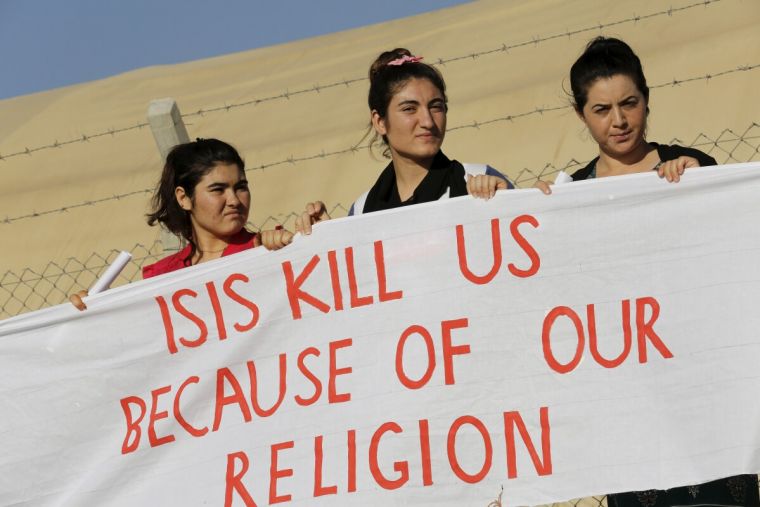Religious freedom severely restricted for 75 per cent of global population

Three-quarters of the world's population suffer from severe restrictions on religious freedom, the US State Department said on Wednesday.
The 2015 International Religious Freedom Report released on August 10 said that a quarter of countries around the world, which account for about 75 per cent of the global population, curtail religious liberty through "government policies or the hostile acts of individuals, organizations, or societal groups."
"Around the world, governments continued to tighten their regulatory grip on religious groups, and particularly on minority religious groups and religions which are viewed as not traditional to that specific country," the report, which is released annually, said.
Researchers found that the number of countries that require "some kind of registration" has increased significantly over the last 20 years, to nearly 90 per cent of all countries. They found "a strong link between increasing registration requirements and an overall deterioration in the status of religious freedom in many countries," the report said. "They also found that members of minority religions, or religions that are new to a country, are disproportionately discriminated against by this increasing regulation of the religious space."
The report placed particular emphasis on blasphemy laws around the world, which Ambassador at large for international religious freedom, David Saperstein, said had a "chilling, sometimes deadly effect".
"Roughly a quarter of the world's countries have blasphemy laws, and more than one in 10 have laws or policies penalizing apostasy, and the existence of these laws has been used by governments in too many cases to intimidate, repress religious minorities, and governments have too often failed to take appropriate steps to prevent societal violence sparked by accusations of blasphemy and apostasy," Saperstein said.
"And when these claims turn out to be blatantly false accusations made to pursue other agendas, governments will often fail to act to hold perpetrators accountable. These government failures weaken trust in the rule of law, creating an atmosphere of impunity for those who would resort to violence or make false claims of blasphemy."
The State Department highlighted Pakistan, Sudan, Saudi Arabia and Mauritania as giving particularly harsh punishments for blasphemy and apostasy. "Such laws conflict with and undermine universally recognized human rights," it said.
The report also said Islamic State and Boko Haram "continued to rank amongst the most egregious abusers of religious freedom in the world" last year.
It condemned ISIS' "brutal strategy" against minority groups such as Yazidis, Christians and Shia Muslims, and Boko Haram's "indiscriminate, violent attacks targeting both Christians and Muslims who spoke out against or opposed their violent ideology".
It also said the Syrian government was responsible for the abuse of Sunni Muslims and members of other religious minority groups.
Specific countries where citizens were found to be denied religious freedom include North Korea, where the exercise of religious freedom "continued to be nearly non-existent", Eritrea, Burma, Vietnam and the Central African Republic.
Russia's anti-extremism measures have been used by authorities to "revoke the registrations of minority religious groups and impose restrictions on their religious practices, and their ability to purchase land and build places of worship," the report said.
However, the State Department also noted some positive trends in religious freedom. It praised European measures to combat anti-Semitism and anti-Muslim hatred, and said the Kenyan Muslims who shielded Christians from an al-Shabaab attack in December 2015 were an example of improved interfaith relations.
It also pointed to Pope Francis' trip to the Central African Public in November last year, which religious leaders said "helped restore a significant degree of trust between religious communities".











